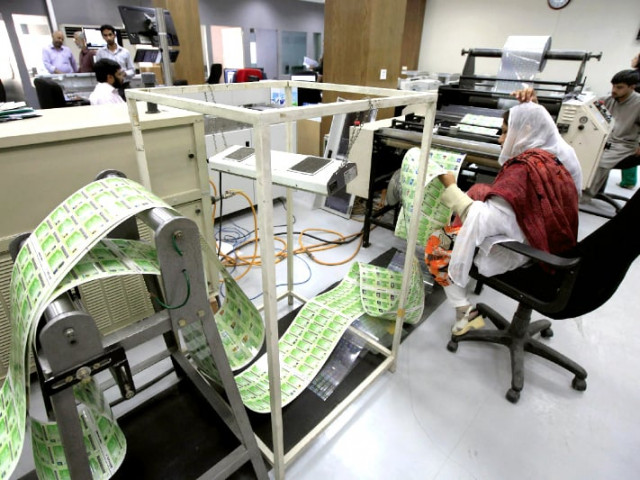Success story: CNICs remove ghost voters, target poor for aid
Registration spiked after cards became mandatory for poor to qualify for cash hand-outs.

Elderly men wait patiently, carefully combing their hennaed beards, while a guitar-playing student entertains the long queue of Pakistanis lined-up to be photographed, fingerprinted and questioned inside a crowded office in the capital Islamabad.
This is the unlikely setting for possibly one of Pakistan’s few success stories - a massive increase in citizens signing up for government identity cards termed Computerised National Identity Cards (CNIC).
Such things rarely top the agenda of a deeply unpopular government, crippled by daily power cuts, a Taliban insurgency and massive corruption.
But bureaucrats say the successful CNIC registration has dramatically cut the number of ghost voters and is assisting in the distribution of cash payments for the poor and displaced.
“The database has brought a lot of transparency. We signed up so many people,” said Tariq Malik chairman of the National Database and Registration Authority (NADRA).
During elections five years ago, less than half of Pakistani adults had a government-issued CNIC. Now 91% have the plastic green cards, said Malik, who previously worked as a county technology officer in Michigan, United States.
It is hard to verify such a high rate of registration as Pakistan’s census data is many years out of date.
Malik said registration spiked after the cards were required for poor Pakistanis to qualify for cash payments from the government.
However, some families, while grateful for the cash, say the flow of aid is sporadic.
“This money is not enough and it has not made my life any better. I am a poor woman. Whenever I receive this money, I buy a little bit of flour, rice...I am grateful that I am getting something,” Hanifa Meerbeher, 6o, who lives in Karachi’s coastal belt Kaka Pir village said adding she gets 3,000 rupees after six to seven months.
International donors like the World Bank are using the CNIC database for cash distributions. The bank helps fund a programme where around 5.5 million poor families who have registered with NADRA get $10 a month.
“More countries are using cash transfers because poor families can choose what to buy and are more likely to get the money on time than aid given in other ways,” said a World Bank spokesman.
Neighbouring India helps its poor via subsidised food or fuel, but much of its aid is stolen and ends up on the black market.
Ghost voters, tax cheats
CNIC registrations helped eliminate 37 million ghost voters and add around 44 million real people to electoral roles, said Malik, adding voters can now use their CNIC number to check their registration by text message. A date has not yet been set for the next election, due in the first half 2013.
In future, the CNIC database may also help in the fight against tax evasion, fraud and crime, but only if the government uses the information, say sceptics like tax expert Ikramul Haq.
Registering Pakistan’s 180 million population spread from the Indian Ocean to the Himalayas meant sending mobile registration vans and skiers laden with bulky equipment to far-flung villages and setting up booths at fairs.
In conservative towns where women in black or blue burqas scurry through ramshackle bazaars, women-only CNIC centres were established after the Taliban objected to men taking women’s fingerprints.
Corruption
CNIC registration operation has not been immune to widespread corruption. Local newspapers carry frequent complaints that NADRA staff ask for cash to help the poor or illiterate get their benefits.
Around half of the 20 people Reuters interviewed said that cards often contain deliberate errors and corrections are costly.
“My name is Ikram Khan and they mentioned in my ID card as Ikram Gul. It was their fault but they made me suffer,” grumbled Khan as he waited in line in the frontier city of Peshawar.
In the ancient walled city of Lahore, housemaid Faiza Biti, 29, said she’d been trying for more than a year to change her place of residence but officials kept telling her to pay $50.
Several interviewees said Afghan refugees can get cards illegally by paying around $800. The daily wage for a labourer is about $2.
Malik admits corruption is a problem, but says he is working on eliminating it and has sacked corrupt employees. “We’ve already let more than 160 people go,” he said.
Published in The Express Tribune, November 24th, 2012.



















COMMENTS
Comments are moderated and generally will be posted if they are on-topic and not abusive.
For more information, please see our Comments FAQ